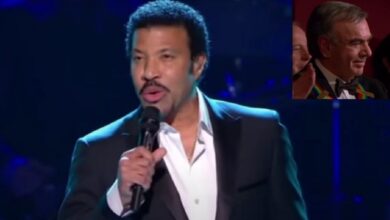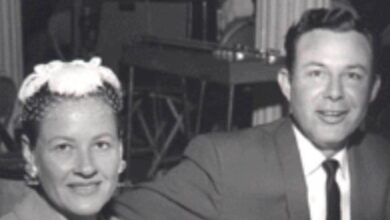Elvis truly captured something powerful and beautiful with this song
Elvis Presley’s performance of “If I Can Dream” during the ’68 Comeback Special is an enduring and influential moment in music history. This special, officially known as “Elvis,” aired on December 3, 1968, and was a pivotal moment in Presley’s career. Clad in a striking all-black leather outfit, Elvis took the stage with an electrifying presence, marking his return to live performance after a seven-year hiatus focusing on film. The choice of “If I Can Dream,” a song inspired by the tumultuous social and political climate of the 1960s, underscored the special’s themes of hope and renewal.
The song was written by Earl Brown and was heavily influenced by the social upheavals of the time, including the civil rights movement and the assassination of Martin Luther King Jr. Its lyrics, brimming with a message of optimism and unity, were a departure from the more light-hearted songs that characterized much of Elvis’s earlier career. The performance, with its orchestral backing, reflected the gravity and emotional weight of the song’s message. The grandeur of the orchestration, coupled with Elvis’s powerful and emotive delivery, elevated the performance to a level of profound impact.
Elvis’s interpretation of “If I Can Dream” during the special was marked by his raw energy and vocal intensity. His voice, capable of conveying a broad spectrum of emotions, was particularly effective in delivering the song’s heartfelt plea for peace and understanding. The performance was not just a showcase of his musical abilities but also a demonstration of his capacity to connect with audiences on a deeper emotional level. As he sang, it was evident that he was deeply moved by the song’s message, which resonated strongly with the prevailing sentiments of the era.
The ’68 Comeback Special was instrumental in revitalizing Elvis’s career, positioning him once again as a dominant force in popular music. Prior to the special, Elvis had focused largely on a series of films, and the musical landscape had evolved significantly during his absence. The special, and particularly the performance of “If I Can Dream,” was a statement of Elvis’s continued relevance and his ability to adapt to changing times. It was a critical and commercial success, reaffirming his status as the King of Rock and Roll and showcasing his ability to address contemporary issues through his music.
The impact of the performance extended beyond just the immediate reaction of audiences and critics. “If I Can Dream” became an anthem of sorts, symbolizing a yearning for change and a call for unity. The song’s message, combined with Elvis’s passionate delivery, captured the spirit of a generation grappling with social and political challenges. The performance also highlighted Elvis’s versatility as an artist, showing that he could address serious themes with the same charisma and skill that had defined his earlier work.
In the years since the special, “If I Can Dream” has remained a significant part of Elvis’s legacy. The performance is frequently cited as one of the highlights of his career and continues to be celebrated for its emotional depth and musical excellence. The special as a whole is remembered not only for its successful comeback but also for its demonstration of Elvis’s enduring appeal and his ability to evolve with the times.
Overall, Elvis Presley’s rendition of “If I Can Dream” in the ’68 Comeback Special stands as a powerful testament to his artistry and influence. The performance is a poignant reminder of the power of music to inspire and unite, reflecting the timeless impact of Elvis’s contributions to the world of entertainment.





